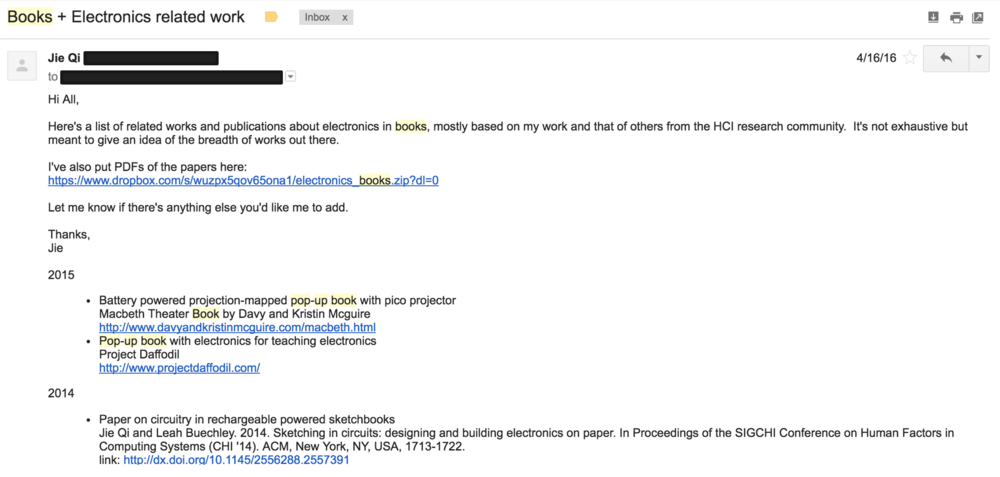Developer of interactive books with LEDs complained about the theft of ideas by Google employees

The other day in the network appeared an unusual story about the theft of ideas. It is unusual because it is about the work of a graduate student and the attitude of Google to her, whose employees and their ideas should have a lot. But somewhere the system failed and the company began the process of patenting someone else's development.
It all started a few years ago, somewhere in 2013, when an ordinary student named Jie Qi had the idea to create drop-down three-dimensional books with LEDs and sensors. The books were interactive, they took the reader through the elements of the plot and allowed everyone to colorfully represent the events. One of the books was about an LED named Ellie, who dreamed of becoming a star. The matter is not in the plots, but in the books themselves, or rather, the idea that became the basis of the work.
In March 2014, the author of the development was invited to Google as a visitor - this is a common practice of a company that talks about its projects and technologies. He was able to visit the offices of the company, meet with its employees, some of whom he told about his books.
')
This led to an invitation for an interview at ATAP (Advanced Technology and Projects). The head of this department also received information about the development of a potential employee. An offer was received in the toga, which had to be abandoned for a number of reasons - the main of them was studying, the desire to continue to receive an education.
Everything went on as usual, but two years later the author of the idea received a message from friends that a description of his idea was found in the patent application. Moreover, the patent was obtained by Google employees, as it turned out - by the same people who conducted the interview. Then the message about the "original idea of Google engineers" was published as news in many techno-media.

A little later, the author came across a similar story on the network, to which Google had nothing to do. But the narrator described the problem in detail and how it solved it, having achieved the cancellation of patent registration.
What should be done in such cases?
The main thing is to collect a maximum of source codes that show the formation of an idea and work on it. These can be drafts, sketches, blog posts, videos, etc.

Then you should follow the development of the situation - and especially the process of patenting a stolen idea. In this case, it is worth acquiring the help of a lawyer, since it is very difficult, if not impossible, to cope with such a case on your own. True, the help of a lawyer who specializes in patent law cannot be inexpensive.
The author of the idea of interactive e-books was lucky - the patent of Google employees was not yet approved, it was only considered. And the two authors were the same people who attended the interview.

Then one of the leaders of the organization in which the author of the idea worked (one of the MIT divisions) called the head of ATAP (he was familiar with him, or rather, with her). After a quick trial, the author of the idea was suggested to indicate in the patent. But he refused, because he did not work on the project himself, a whole team took part in it.
Moreover, as it turned out, the name of the author, indicated in the patent, did not matter - if the patent itself were registered, then Google would become the copyright holder.
In the end, everything was decided fairly quickly - in two weeks the head of ATAP left this division (the reason is unclear), and the registration of the patent application was denied.
According to the victim, MIT support really helped him in this story, if not for her, then perhaps the completion would not have been so optimistic. As for Google, the employees of the corporation most likely just wanted to get bonuses for a patent. Two years after the interview, they probably decided that the author of the idea had abandoned her, and began the process of preparing the patent.
Source: https://habr.com/ru/post/431870/
All Articles